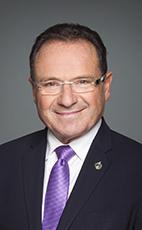Mr. Speaker, I would like to thank my colleague for her comments, and thank her and her party for their intended support of this bill, because it is very important.
There was one point in her comments where there may have been a translation issue. I am not sure. However, she referred to the Canada-China free trade agreement. I would just like to inform the House and Canadians that we do not have a free trade agreement with China. We have a foreign investment protection agreement, which is very crucial for potential investors in a foreign economy.
For that reason, I wonder if my colleague could explain why she would not have stood up for those foreign investors who intend to invest in South Korea, by having her committee try to remove that section from this bill. It is a very crucial section for those who intend to invest in South Korea.

